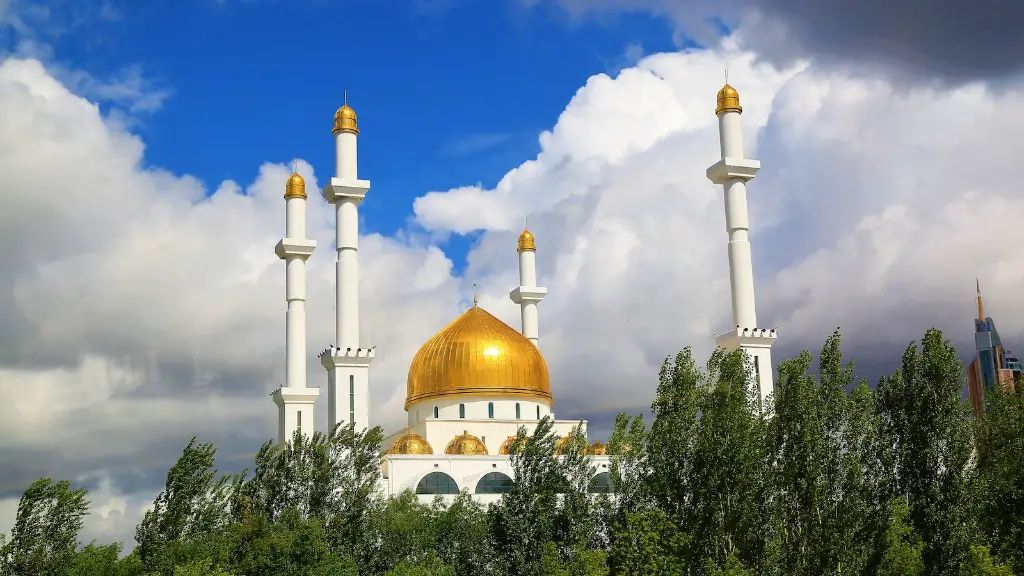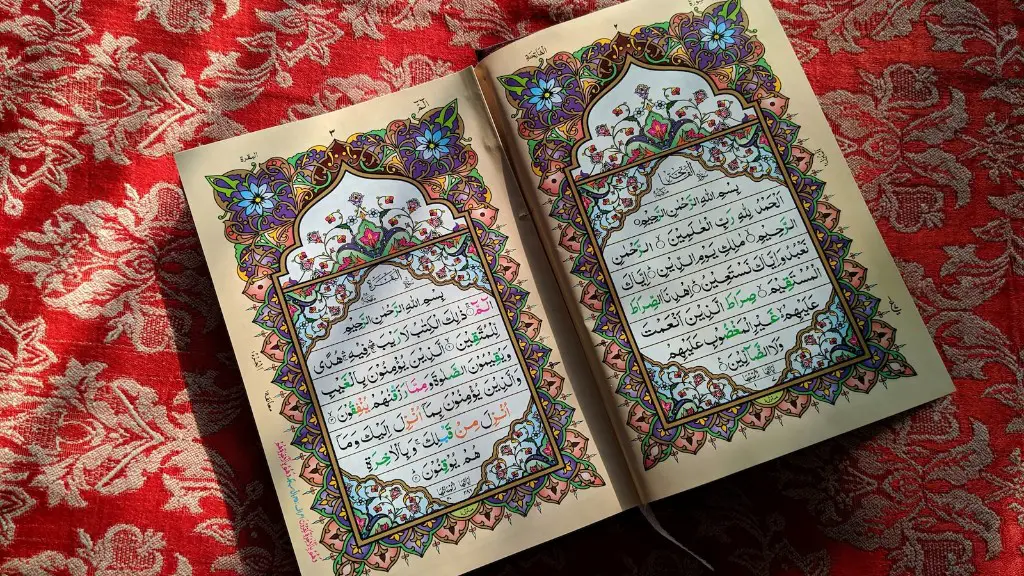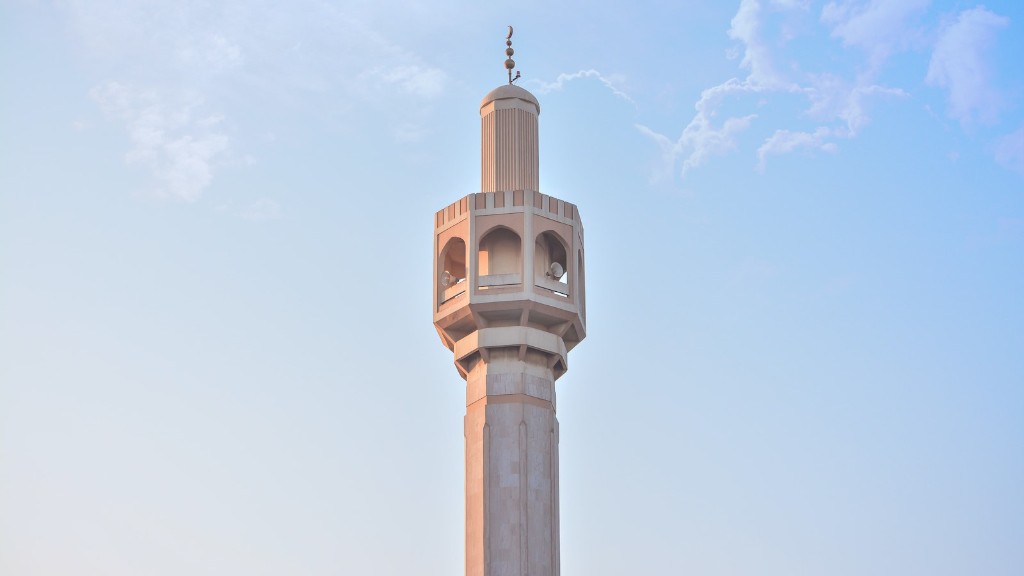There are many cultures that brought Islam into Africa. Islam is thought to have first arrived in Africa with Muslim traders in the seventh century. However, it was not until the ninth century that Islam began to spread in earnest. Islamic scholars and teachers played a key role in converting Africans to Islam and establishing African Muslim states. The Hausa, Songhai, Mali, and Ghana were among the most important of these early Muslim states.
There is no single answer to this question as Islam spread to different parts of Africa through a variety of means and over a long period of time. While some scholars believe that Islam was introduced to the continent through trade routes from the Middle East, others believe that it was spread through the movement of Muslim Sufi saints and missionaries. Additionally, a number of African rulers and members of the elite converted to Islam in the centuries after the religion’s founding, helping to spread its influence even further.
How did Islam first arrive in Africa?
There are different accounts of how Islam first came to Africa. According to Arab oral tradition, it was with Muslim refugees fleeing persecution in the Arab peninsula. This was followed by a military invasion, some seven years after the death of the prophet Mohammed in 639, under the command of the Muslim Arab General, Amr ibn al-Asi. Another account suggests that Islam was first introduced to Africa through trade routes from the Arabian peninsula. Whatever the case, it is clear that Islam has had a long and complex history in Africa.
Islam is a religion that was spread through peaceful means, such as traders, scholars, and missionaries. African rulers either tolerated the religion or converted to it themselves. Islam had a significant impact on West Africa, as it brought new ideas and ways of thinking to the region.
Who first brought Islam to West Africa
North African traders were instrumental in introducing Islam to West Africa. Major trade routes connecting Africa below the Sahara with the Mediterranean Middle East, such as Sijilmasa to Awdaghust and Ghadames to Gao, facilitated the spread of Islam. Islam provided a unifying force among the various ethnic groups in West Africa and helped to create a sense of identity and solidarity.
Islam first spread to Africa from Southwest Asia in the early 7th century CE. Today, almost one-third of the world’s Muslim population resides in Africa. Islam has had a profound impact on African culture and society, and continues to play a significant role in the continent’s politics and economy.
Why did Swahili people convert to Islam?
Islam was first introduced to the Swahili coast by Arab traders in the ninth century. The Swahili people appreciated the religion’s value and recognized that adopting it would also help their trading relationships by granting them new access to trade networks.
Islam spread through military conquest, trade, pilgrimage, and missionaries Arab Muslim forces conquered vast territories and built imperial structures over time. Through these various channels, Islam was able to take root and grow in different parts of the world.
Did Arabs colonize Africa?
The Arab conquest of North Africa in the 710s is an event rarely classified as colonialism, though Arabs did settle in the region. The Arab forces took over the city of Tangiers in modern-day Morocco, thus completing their conquest of North Africa. The Arabs then moved on to Iberia, where they established a number of states.
The expansion of the Islamic faith began when the Prophet Muhammad started to share the divine revelations he had received from Allah. He and his followers were persecuted and had to flee to the neighboring city of Medina in 622. There they were welcomed and the faith began to grow. The Islamic faith continued to expand through trade and conquest. By the 8th century, Islam had spread throughout the Middle East, North Africa, and parts of Europe and Asia.
Who were the first converts to Islam in Africa
It is generally agreed that the first West Africans to be converted to Islam were the Berbers, who inhabit the Sahara Desert. By the second half of the tenth century, the Sahara had become part of the Dar al-Islam, or the “country of Islam.”
Muslims first arrived in East Africa through southern Yemen, which was a main trading area at the time. Many Muslims settled along the coast, where they were able to trade and live relatively peacefully. However, as one moves inland, the Muslim population decreases significantly. This is likely due to the fact that it was more difficult to travel and trade in the inland areas.
Who brought Islam to Nigeria?
Abu-Abdullah Abdul-Fattah Adelabu has argued that Islam reached Sub-Sahara Africa, including Nigeria, as early as the 1st century of Hijrah. He claims that Muslim traders and expeditions during the reign of the Arab conqueror, Uqba ibn al Nafia (622–683), played a role in spreading the religion. This is supported by the fact that many of the countries in this region were part of the Umayyad dynasty during Muawiyah’s reign.
The language dates from the contacts of Arabian traders with the inhabitants of the east coast of Africa over many centuries Under Arab influence, Swahili originated as a lingua franca used by several closely related Bantu-speaking tribal groups.
Where did Islam originate
Islam is a monotheistic religion that is youngest of the major world religions. Its roots go back further, but scholars typically date the creation of Islam to the 7th century. Islam started in Mecca, in modern-day Saudi Arabia, during the time of the prophet Muhammad’s life. Muhammad is considered to be the founder of Islam. He is the last in a line of prophets that includes Abraham and Moses. Muslims believe that Muhammad was the final prophet and that his teachings are the final revelation of God. Muslims believe in one God, who is merciful and just. Muslims also believe in the angels, who are God’s messengers, and in the holy books, which are the revelations of God. Muslims believe in the after-life, and that God will judge all people according to their deeds.
Islam is a monotheistic religion that originated with the prophet Muhammad in the seventh century. Muhammad was born in Mecca in what is now Saudi Arabia, and he began receiving revelations from the angel Gabriel in 610. Muhammad and his followers spread the teachings of Islam throughout the Arabian peninsula, and the religion eventually spread to other parts of the world. Islam teaches that there is only one God, and that Muhammad is his messenger. Muslims believe in the Quran, the holy book of Islam, and they follow the Five Pillars of Islam, which are the beliefs and practices that every Muslim must follow.
Where did the Arabs come from?
The Arabs are first mentioned in the Biblical and Assyrian texts of the 9th to 5th centuries BC. In these texts, they are shown to be inhabiting parts of present-day Syria, Saudi Arabia, Jordan, Lebanon, and Iraq. Several Arab tribes and towns are identified during the Neo-Assyrian period through their onomastics (study of names) and toponyms (study of place names).
Islam is one of the largest religions in the world and has a long history in the Indian subcontinent. Islam arrived in the inland of Indian subcontinent in the 7th century when the Arabs conquered Sindh and later arrived in Punjab and North India in the 12th century via the Ghaznavids and Ghurids conquest. Islam has since become a part of India’s religious and cultural heritage.
Final Words
The Islamization of Africa began with the lifetime of the Islamic prophet Muhammad in the 7th century. Muhammad’s military and political successes brought about a new era in world history, and new opportunities for the spread of Islam into Africa. Even after his death, the new Muslim community continued to expand, reaching Africa by the 10th century. The Islamization of Africa has been a gradual and complex process, marked by political, economic, and cultural changes.
There is no easy answer to this question as there is no single answer. Different cultures brought Islam into Africa at different times, and there is no definitive answer as to which one was the most influential. However, it is clear that Islam has had a profound impact on Africa, both culturally and politically. It is also clear that the African people have embraced Islam and made it their own, adapting it to their own unique cultural context.



